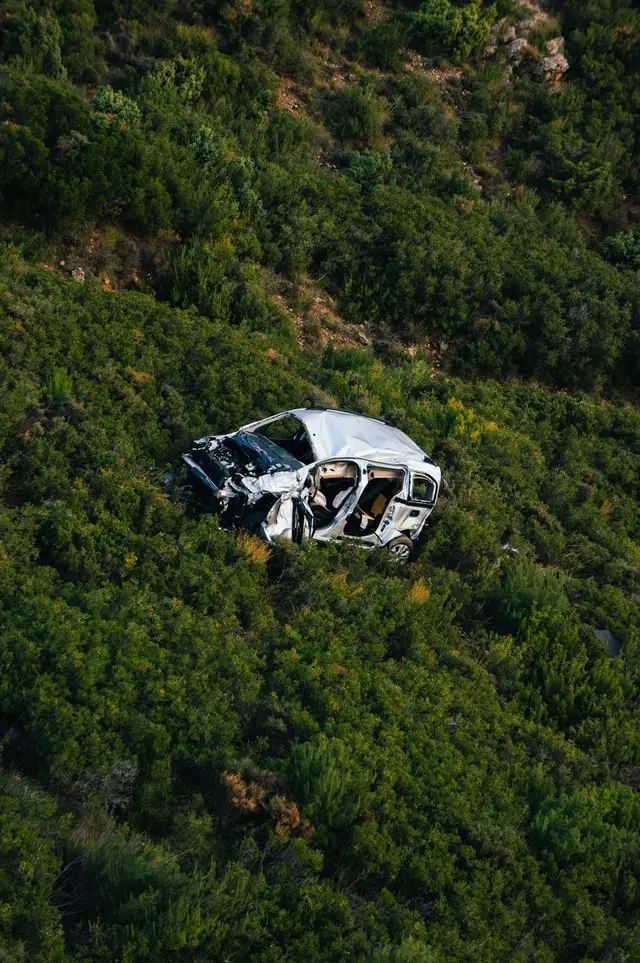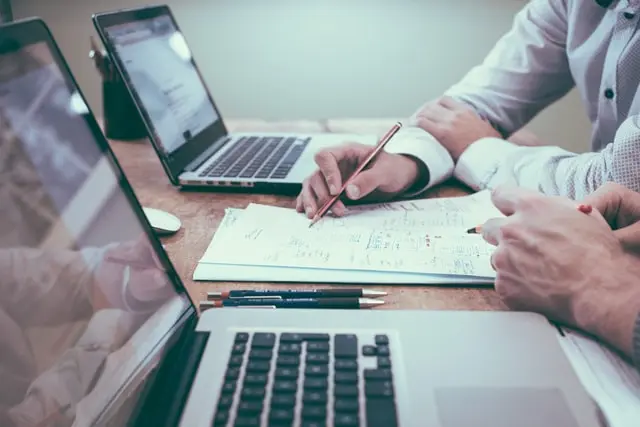4 Things To Do Immediately After Your Car Wreck
Car accidents are a common occurrence. According to the reports by National Highway Traffic Safety Administration, there are over six million car accidents in the United States every year. That’s one accident every ten seconds.
If you are hurt in a car wreck, there are certain things that you need to do immediately to protect yourself and your legal rights. Here are the four most important things:
1) Check for Injuries and Call for Help
As per reports, Car crashes in the US yield $380 million annually in medical costs. If you or anyone in the vehicle is injured, it’s important to seek medical attention immediately. Even if you don’t feel pain immediately, some injuries may not appear until a few days later.
Some internal injuries include:
-Abdominal pain
-Headaches
-Back pain
-Chest pain
These are just a few injuries that might not be immediately apparent. However, if you hit your head, it’s important to watch for symptoms of concussion-like dizziness, nausea, and headache in the following days.
When you or anyone in your vehicle is injured, you should first call for help. If you can, move yourself and any passengers away from oncoming traffic and turn on your hazard lights.
2) Take More Pictures of the Accident Scene, Your Injuries, and the Damage To Your Vehicle
As per reports submitted by WHO, approximately 1.3 million people die every year as a result of road traffic crashes. If you have been involved in a car accident, it is important to take some time to ensure your safety and the safety of others.
It is crucial to stay at the accident scene and not to leave until the police arrive. If possible, take pictures of the accident scene from different angles. These pictures will be important when filing an insurance claim or personal injury lawsuit. It is also a good idea to take pictures of your injuries and damage to your vehicle.
If you have got a camera or a smartphone, take pictures of:
The accident scene, including skid marks and debris
Your injuries, if visible
The damage to your vehicle
The other driver’s vehicle and license plate
Having these photos will be helpful when dealing with insurance companies. But, of course, it is always better to have too many photos than not enough.
3) Gather Medical Documentation
Once you have received medical aid, you will want to ensure you get all the documentation from the hospital or doctor. It will help to prove your injuries and pain and suffering later on. In addition, it is important to keep track of all medical bills, medication, doctors’ visits, etc., to get compensated for these expenses.
4) Contact an Expert Personal Injury Lawyer
The insurance firm will have a team of lawyers looking out for their interests, so you should too. An experienced personal injury lawyer can help you navigate the claims process and fight for the compensation you deserve.
Other benefits of hiring a personal injury lawyer include:
-You won’t have to worry about the paperwork or dealing with the insurance company.
-A lawyer can help you get a higher settlement.
-You can focus on your recovery while your lawyer handles the rest.
Finding a licensed and experienced personal injury lawyer with a proven track record of success is crucial.
Step by Step Guide After a Car Wreck
If you’ve been in a car wreck, you might be wondering what your next steps should be. This article will help you determine what to do after an accident. Listed below are tips to get you started, including how to contact law enforcement, document the extent of your injuries, and contact your insurance company. These are just a few of the many things you need to do. Follow these steps and you’ll be well on your way to recovering from your car wreck.
Documenting the severity of your injuries
If you’ve been in a car wreck, document the severity of your injuries and get copies of all hospital records, doctor’s notes, and X-rays. Ask for photographs of your injuries. If possible, get someone else to take pictures, too. Not only will these photos help you with your injury claim, but they will also help your treating physician. Besides ensuring that you’re safe, documenting the severity of your injuries after a car wreck will help you receive the compensation you deserve.
After the accident, you should keep a journal to document the severity of your injuries. Keep track of any changes in your condition, such as pain, stiffness, and swelling. Note your symptoms and the ways that an injury has affected your daily life. Keep track of doctor’s appointments, rehabilitation visits, and other healthcare providers, as well as any medications you’ve taken. If you’ve been taken to the emergency room after a car wreck, keep those notes in your accident journal.
It’s important to keep track of all medical bills, especially x-rays, as evidence of the severity of your injuries. If you’ve been to the hospital and gotten treatment, be sure to save all medical bills and receipts, as these can be crucial evidence in your injury claim. Take photos of your medical equipment as well. Taking pictures can help you present a strong case when you file your injury claim.
You should document your injuries after a car wreck to support your compensation claim. It is important to keep records of all discussions with insurance companies and consult a doctor right after an accident. Your injuries may be severe enough to require medical attention months after the accident. If you don’t document your injuries after an accident, your claim may be rejected because of inadequate evidence. Your doctor can certify your injuries and help you get the compensation you deserve.
After a car crash, take photographs of the scene of the accident. Note down what happened and who was at fault. Also, take pictures of the vehicles involved in the accident. Photographs are important to document the extent of your injuries. Photos also help you with the handling of potential claims. So make sure to take pictures of everything, and document the details. You’ll be glad you did. It will help your case immensely.
Contacting law enforcement
Immediately following a car wreck, contact law enforcement to file a report and document the accident. Obtain witness and insurance information, if possible, and take pictures of the scene. It is also a good idea to record any statements or evidence, including video surveillance footage. You should also file a police report to ensure your rights are protected. Read the following tips to help you handle this important step safely and responsibly.
Depending on the type of accident, you may not have to contact the police after a car wreck, but you should still call the authorities as soon as possible. Police want to investigate the details of the accident to make sure the responsible parties are compensated for any damages. However, do not be rude or answer the police questions. In addition to that, you should note down the details of the accident and any damage that occurred.
Even if you are not at fault in the accident, contact the police and document the details of the incident. While the other driver may appear to be cooperative, you may not be sure if they have any injuries. It is still a good idea to contact the non-emergency police line. You’ll have access to a police officer’s legal expertise and a dedicated team of professionals who can help you through this challenging time.
If you’ve been involved in a car wreck, you’ll want to contact law enforcement as soon as possible. It’s important to remain calm and avoid apologizing for your mistake or asking for immediate compensation. You’ll also want to avoid signing any documents, such as insurance documents until the police arrive. When you meet with the police, take pictures of the accident scene and write down important details, such as names and insurance policy numbers. Regardless of who is responsible for the accident, it’s crucial to stay calm and remember that your emotions might be high and you’ll be in a state of shock.
The police may not be involved if you’re involved in a minor car accident, and you’re not obliged to speak to them. You should exchange information such as insurance and contact numbers, but don’t admit fault. While you may seem cooperative and agree with the other driver at the accident scene, your intentions might change later. Likewise, the driver you’re arguing with at the scene may play nice but later deny responsibility.
Contacting insurance companies
If you’ve recently been in a car wreck, the first step you should take is to contact your insurance company. Your insurer will send out a claims adjuster to investigate the accident. You must notify your insurance company as soon as possible after the accident, particularly if you were not at fault. Most car insurance policies contain a clause titled Cooperation and Notice of Occurrence. This clause requires you to report the accident and cooperate with the insurance company during the investigation, or the company may report that you’re at fault.
Calling the police is also crucial after a car wreck. Some states require you to call the police immediately. The officer will document the scene of the accident and complete an official report. In case you are not able to contact the police, you can also fill out the police report online. You’ll also need to exchange contact information with the other driver, including their full name, phone number, and license number. You may want to consider filing a claim with the other driver’s insurance company if the accident has caused injury or property damage.
Although it is tempting to take the driver’s side, it is best to consult with an attorney before giving out any information to the insurance company. Even if you think you’re not injured, back and neck pain often takes hours or days to surface. While it’s tempting to say that you’re fine, it’s not worth it if you have to deal with whiplash later. Instead, contact an attorney as soon as possible and record everything you can about the wreck.
If you’re not at fault in a car accident, you shouldn’t call your insurance company. If the other driver wasn’t at fault, you’ll need to pay for their medical expenses. In addition, you’ll want to make sure that the other driver is not at fault for the accident. This is especially true if the accident is caused by your fault, as you may be personally liable for the damages of the other driver’s insurance company.
Final Thoughts
Whether you’re the victim or the at-fault driver, being involved in a car wreck is always a traumatic experience. However, an expert attorney can investigate the accident and help you get the compensation you deserve. They have the right knowledge and experience to ensure that you are fairly compensated for your injuries, damages, and losses.














